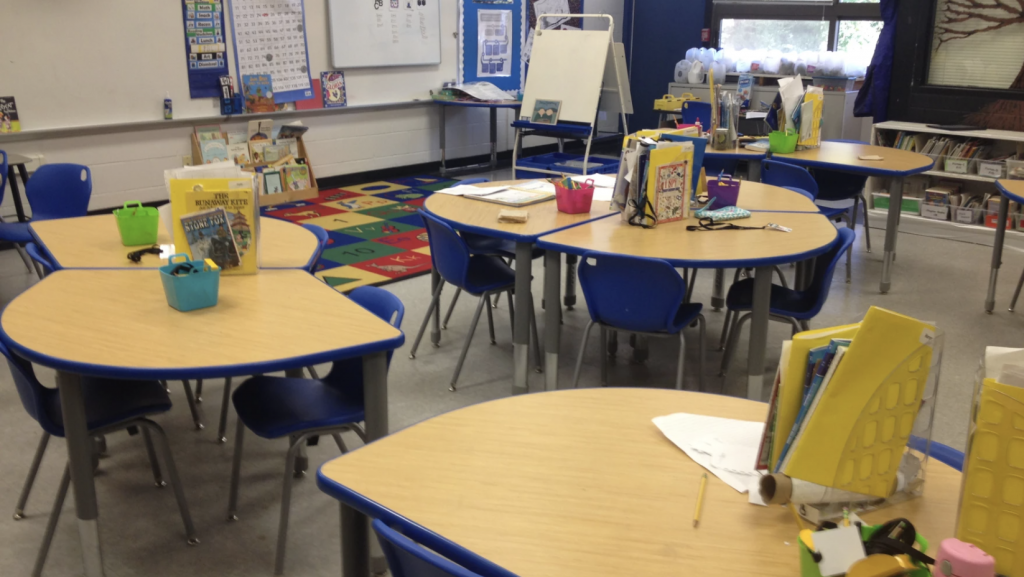New report finds dip in child poverty, but also fewer in preschool and reading by third grade
Colin Jackson August 22, 2024Third grade reading proficiency continued to suffer after a COVID-19 pandemic-related dip, the report published by the Annie E. Casey Foundation found.

Ann Arbor Public Schools empty classroom.
A new report on children in Michigan is revealing a mixed bag when it comes to measures of child well-being.
On one hand, a smaller percentage of students were experiencing homelessness in 2022 compared to five years prior. Early childhood poverty was also down statewide from 25% in 2017 to a little under 20% in 2022.
Plus, infant mortality dropped by close to 12% years.
The numbers come from the Michigan League for Public Policy’s Kids Count in Michigan Data Profiles. That’s part of the nationwide data report published by the Annie E. Casey Foundation.
The Michigan report mostly compares numbers collected between 2021 and 2023 with data from 2017.
Michigan League for Public Policy Kids Count Director Anne Kuhnen said government programs meant to address poverty expanded during the COVID-19 pandemic, and looking at data from that time can provide new insights.
“I think it actually presents a ton of opportunities because it was almost like there was a little experiment that happened that we could see you know what it is it going—what is going to happen for children and families when we increase this benefit that’s existed for a long time but has always left some kids out,” Kuhnen told reporters during a luncheon Wednesday.
Materials provided during Wednesday’s event included insights that discussed how over a dozen of the areas measured saw improvements.
But on the other side, third grade reading proficiency was suffering from a COVID-19 pandemic-related dip. And a lower proportion of young kids were getting tested for lead or entering preschool.
When it comes to the areas where improvement is needed, Kuhnen said the pandemic also makes it tough to properly evaluate the results of initiatives like the state’s Read by Grade 3 law.
“We have some of these tools in place and we need to see, now that kids are back to school and in person, is it going to be effective? And then, of course, we also know that it takes money,” Kuhmen said.
The luncheon also featured a roundtable discussion with several stakeholders, including the director of the Michigan Department of Lifelong Education, Advancement, and Potential — a state agency less than a year old that’s designed to support aspects of education taking place outside of the classroom.
Director Beverly Walker-Griffea said she feels her department can help close some of the gaps noted in the report.
“We are not moving where we should be when you start talking about childcare, about early childhood, about our children,” Walker-Griffea said.
Walker-Griffea and some of the other speakers echoed the League for Public Policy’s calls for more government investment in making childcare more accessible, saying that would be a path forward for improving communities and the economy.
Other suggestions included increasing mental health resources in schools, passing paid family and medical leave, and providing universal free community college.
Trusted, accurate, up-to-date.
WDET strives to make our journalism accessible to everyone. As a public media institution, we maintain our journalistic integrity through independent support from readers like you. If you value WDET as your source of news, music and conversation, please make a gift today.
